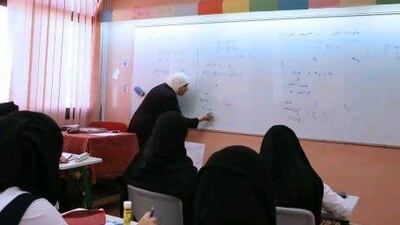ABU DHABI // State school pupils in the emirate have made significant strides in language skills, the results of a test have shown.
The External Measurement of Student Achievement tests, taken by 94,000 pupils in March, show an average five-point gain.
"Students are now [overall] six months ahead of where the previous batch was last year," said Dr Jarrod Hingston, section manager for national assessment at the Abu Dhabi Education Council.
The biggest improvement was in the reading skills of Grade 3 pupils, who scored 471 points in Arabic this year - a seven-point increase from last year. Similar gains were made in English. In reading, Grade 3 pupils scored 508, a 10-point gain from last year.
The test was given by Adec but assessed by education firm Pearson Assessment & Information.
Authorities said the results proved the New School Model, introduced in 2010 to provide a bilingual, modern education, has had an impact.
In primary schools, mathematics and science are now taught in English and bilingual lessons will be extended to the higher grades within the next few years.
"The way pupils are being taught now has had a huge impact on the progress made," said Mr Hingston. "We have had feedback from the parties who conducted the assessment and they said the pupils critical skills in Arabic and English have been increasing."
Mr Hingston also lauded the provision of new and varied resources for teachers.
"It is not like before, when they were using a single resource, the textbook," he said. "Children understand better when there is more interaction and technology use."
The tests were a general indicator for understanding year-on-year progress in a particular grade, Mr Hingston said.
Grade 3 pupils, for example, showed they were able to deal with simple ideas in Arabic text and those in higher grades were able to provide evidence from texts to support ideas.
In English, they could read and respond to visual literary texts with basic vocabulary. Pupils in Grade 4 and Grade 5 could also pick out nouns, verbs and adjectives.
"This is the fourth year of the test and the trend is towards a healthy progression," Mr Hingston said. "For example, in 2009, Grade 3 pupils were scoring 453 points on the scale."
Some good results were also achieved in higher grades, where the New School Model is yet to be fully introduced.
Pupils in Grade 8 and Grade 9 were good at solving probability problems and algebraic expressions.
But the performance of Grade 12 pupils in English reading and mathematics dipped this year. And writing tasks in Arabic were also a weak point for young children, the authority said.
Mr Hingston said it was not alarming because the standardised tests were still a new concept for the pupils.
"This sort of drop is not necessarily concerning because we need to assess the trend over time," he said.
Appropriate teaching plans will be developed to address the shortcomings highlighted in the test, said Karima Al Mazroui, head of Adec's curriculum department.
Salam Al Haddad, principal of the Al Ittihad Secondary School, said pupils were slowly getting used to this type of testing.
"In the first year, the results were not good because it was new," Mr Al Haddad said. "The teachers now teach in a way that helps pupils perform well in these tests."
He said Adec's training programmes had assisted teachers in making classes interesting.
Mr Al Haddad's biggest concern was pupils' Arabic language skills.
"It's sad to see that children perform better in English and not Arabic. This is their mother tongue."

